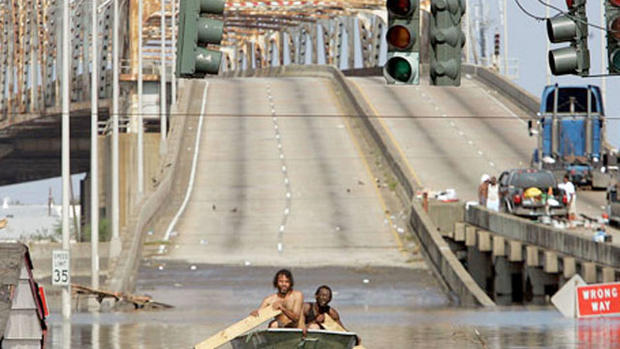Katrina-size hurricanes used to hit New England; could it happen again?
New Englanders are no stranger to hurricanes, enduring the likes of Bob in 1991 and Donna in 1954, which packed winds over 100 miles per hour and caused hundred of millions of dollars in damage.
But that was kids' play compared to the storms that hit the region centuries ago.
Using sediment deposits from a Cape Cod pond, scientists said Wednesday that hurricanes more powerful than any on record in modern times swamped New England between the years 250 to 1150 A.D. And they were pretty frequent, with 23 hurricanes recorded - one for every 40 years - from what was the peak of the Roman Empire to the height of the Middle Ages.
"These records suggest that the pre-historical interval was unlike what we've seen in the last few hundred years," said to Jeff Donnelly, a scientist at Woods Hole Oceanographic Institution in Massachusetts and lead author of the new paper accepted for publication in Earth's Future, a journal of the American Geophysical Union.
The hurricanes of that period were likely category 3 storms - like Hurricane Katrina - or category 4 storms - like Hurricane Hugo - that would be catastrophic if they hit the region today, Donnelly said. The storms were fueled in part by warmer sea surface temperatures in the Atlantic Ocean, according to the study. Temperatures soon fell back but in recent decades have slowly inched upwards due to climate change, raising the prospect of stronger storms in the future.
The tropical North Atlantic sea surface has surpassed past temperatures and is expected to warm further over the next century as the climate heats up, Donnelly said, adding that these findings should help "scientists better predict the frequency and intensity of hurricanes that could hit the U.S. East and Gulf coasts in the future."
"We hope this study broadens our sense of what is possible and what we should expect in a warmer climate," Donnelly said. "We may need to begin planning for a category 3 hurricane landfall every decade or so rather than every 100 or 200 years."
"The risk may be much greater than we anticipated," he added.
